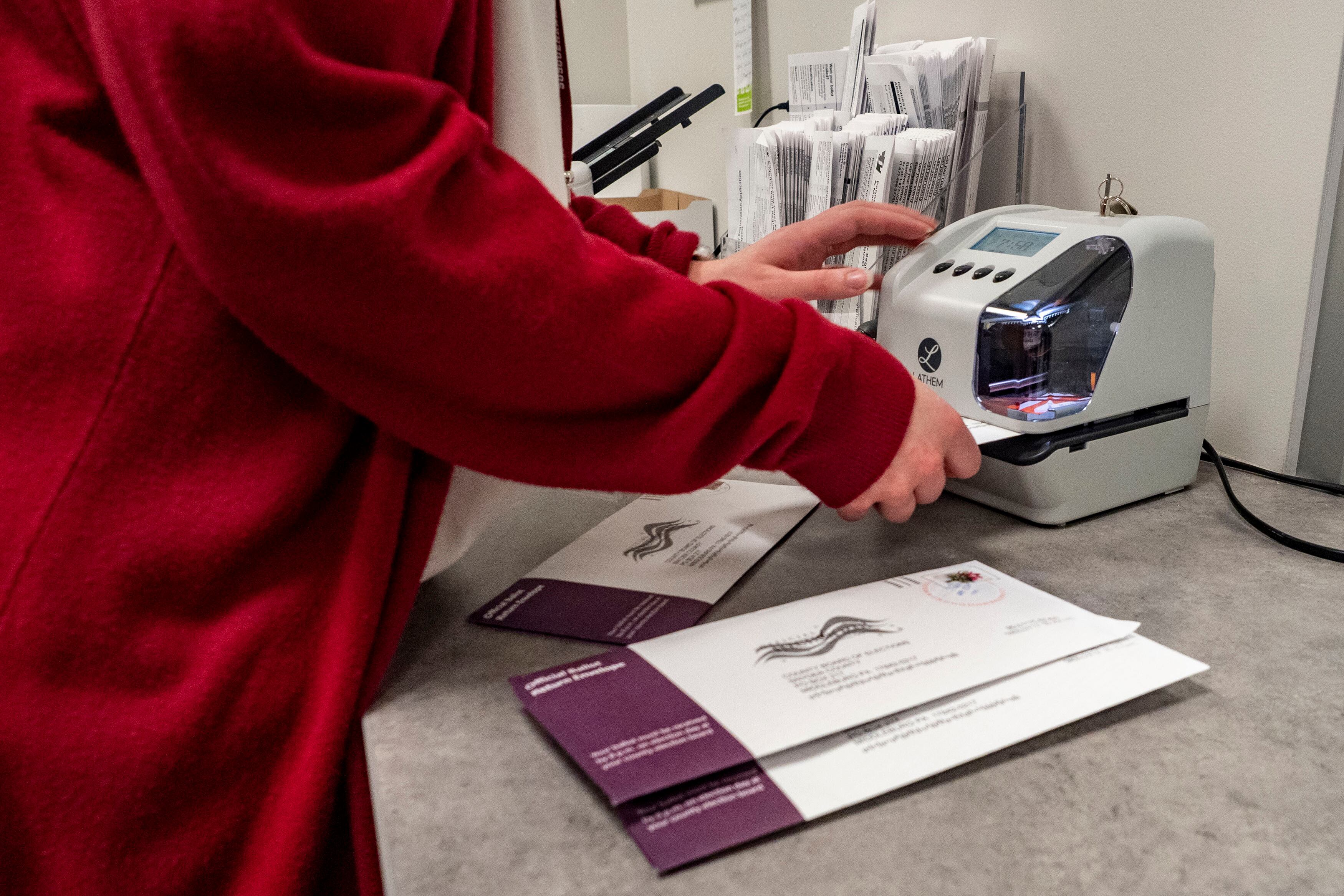Votebeat is a nonprofit news organization reporting on voting access and election administration across the U.S. Sign up for Votebeat Pennsylvania’s free newsletter here.
What happened?
Pennsylvania counties can’t reject a voter’s mail ballot solely because they forgot to put the date on the return envelope or put a wrong date on it, a federal judge wrote Monday in a ruling that likely applies to the upcoming primary. The ruling is the latest — and likely not the last — in a long-running legal battle over enforcing the date requirement that has bounced around state and federal courts.
U.S. District Judge Susan Baxter of the Western District of Pennsylvania ruled Monday that rejecting mail ballots for issues with the date on the outer envelope violates voters’ First Amendment rights, since voting is considered an expression of free speech.
Misdated mail ballots are ones where a voter writes a date on the envelope that is outside of the range between when the county can first send the ballot and the day of the election.
What’s the dispute?
Act 77, the 2019 law that created no-excuse mail voting in Pennsylvania, says a person must sign and date the mail ballot return envelope for their vote to be counted, but election officials have said this date is not used for determining whether the ballot was received by Election Day.
Since then, Pennsylvania counties have rejected thousands of ballots because the envelopes lacked a proper date. The validity of the dating requirement has been disputed for years, with courts going back and forth. This case argued that rejecting ballots for lacking a proper date created a burden on the voter which was not justified by a compelling state interest, an argument Baxter relied on in her ruling.
Baxter, a Trump appointee, said that while dating the envelope was only a “minimal” burden, she determined that the government hadn’t asserted any legitimate reason why it should be imposed on voters. While the Republican National Committee argued it could be used to detect fraud, Baxter noted the only case it cited as evidence was detected through other means.
Another case on the issue is pending in Pennsylvania Supreme Court. Voters represented by the American Civil Liberties Union of Pennsylvania and the Public Interest Law Center argue the dating requirement violates the Free and Equal Elections Clause of the state constitution, which bars any interference with “the free exercise of the right of suffrage.”
Who are the plaintiffs?
Bette Eakin is a voter from Erie County whose 2022 general election mail ballot was rejected for lacking a date. She, along with national Democratic Party groups and the campaign of U.S. Sen. John Fetterman, sued all 67 counties in the state for rejecting improperly dated ballots. Republican groups intervened to defend the requirement.
What happens now?
The Pennsylvania Department of State and the court did not immediately say if this standard applies to the upcoming May 20 municipal primary, although a lawyer representing Eakin said it should apply. Republican groups that intervened in the case could appeal the decision to the 3rd U.S. Circuit Court of Appeals. A representative for the Republican National Committee and the Republican Party of Pennsylvania did not immediately respond to a request for comment on whether they would appeal.
Read more of Votebeat’s recent coverage of challenges to the dating requirement:
- Pennsylvania Supreme Court to hear latest case over undated mail ballots Jan. 17, 2025
- Pennsylvania Supreme Court stops 3 counties from counting undated, incorrectly dated ballots, Nov. 18, 2024
- Philadelphia must count undated and misdated mail ballots from September election, Pa. court rules, Oct. 30, 2024,
- Pennsylvania Supreme Court restores date requirement for mail ballots, voiding lower-court ruling, Sept. 13, 2024
- Mail ballots can’t be rejected over improper date on envelope, Pennsylvania court rules, Aug. 30, 2024
- Pennsylvania’s rule on dating mail ballots faces new challenge in state court, May 29, 2024




